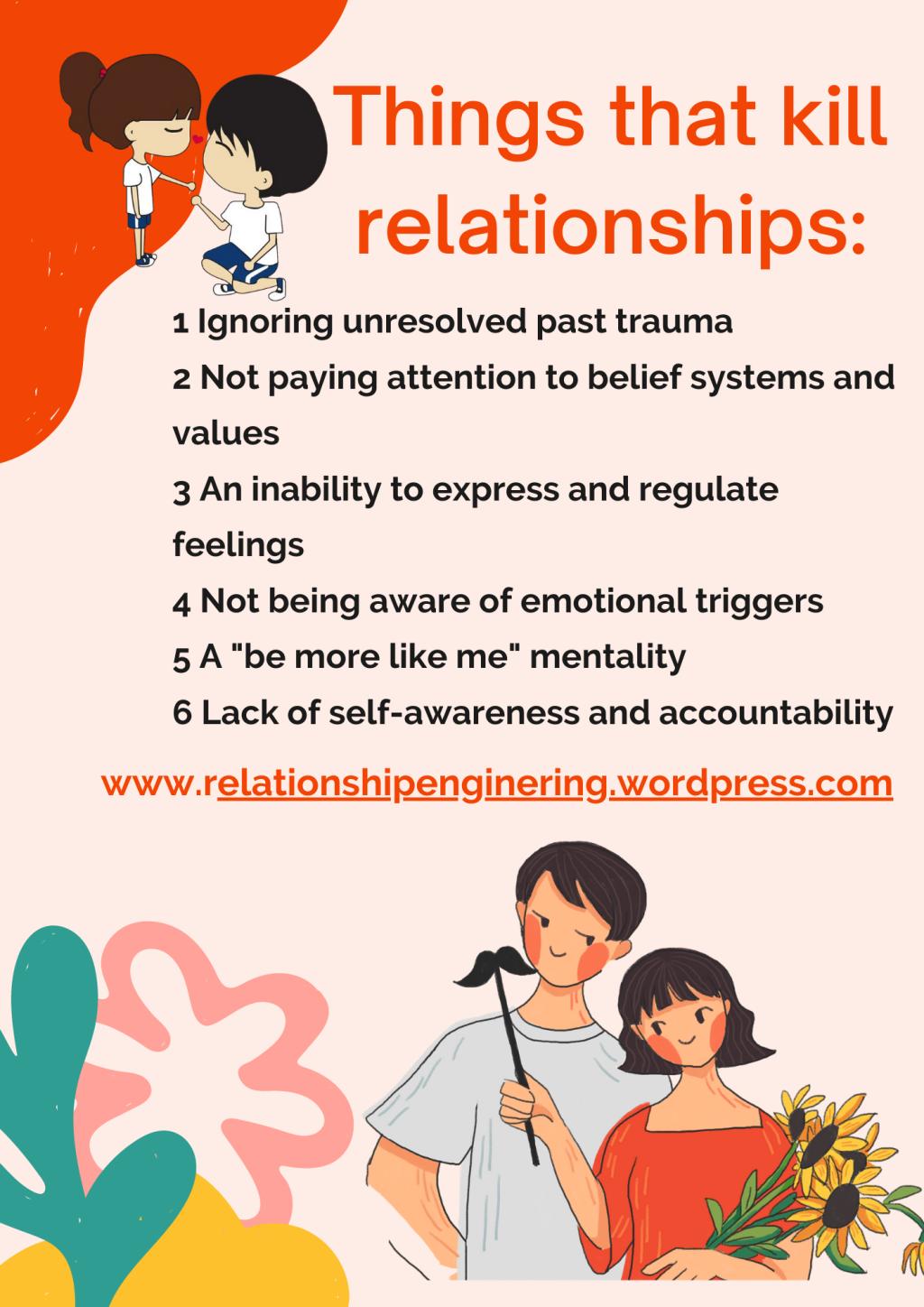Have you ever realize that even the strongest relationships fade away with time.
I am not here just talking about love relationships. Even the friendships. The people who was our go to place whenever we are in trouble or we have a doubt became strangers.
I have seen one of my friends in a mall recently and i was wishing that he may have not seen me. After reaching my home i was thinking How could it be possible that once a person who was so close to me that I share every secret now become so stranger to me that i do not even want to talk to.
Building and maintaining a successful relationship requires effort, understanding, and effective communication. However, there are several factors that can potentially harm even the strongest of bonds.
In this article, we will explore six common relationship killers and discuss how to overcome them, fostering a healthier and more fulfilling connection.
Ignoring unresolved past trauma:
Unresolved past trauma can cast a long shadow over a relationship.
Whether it’s from previous relationships, childhood experiences, or personal hardships, unaddressed trauma can lead to emotional baggage and unhealthy coping mechanisms.
Not a big thing that you have a issue with your partner and both of you have never talked about.
Not paying attention to belief systems and values:
Belief systems and values form the foundation of an individual’s identity.
When partners fail to understand and respect each other’s core beliefs, conflicts and misunderstandings may arise.
It is important to have open and honest conversations about values, religion, politics, and other significant aspects of life. By actively listening and seeking to understand each other’s perspectives, couples can find common ground and strengthen their connection.
An inability to express and regulate feelings:
Emotional expression and regulation are vital for healthy relationships.
I am sure you will prefer regular expression of feelings rather than bottling it up and burst it at once.
Difficult emotions, such as anger, sadness, or frustration, should be acknowledged and communicated in a respectful manner.
Bottling up emotions or expressing them in unhealthy ways, such as through aggression or passive-aggressiveness, can create a toxic environment.
Developing effective communication skills and practicing active listening can help partners navigate emotional landscapes and foster understanding.
Not being aware of emotional triggers:
We all now very well about the emotional triggers of our loved once . And We are all guilty of shameful act of triggering it just for the sake of our pleasure.
I have seen wives interrupting their husbands in between their favorite, games, husband criticizing the clothing sense, makeup skills.
Emotional triggers are sensitive areas but sometimes we ignore it and keep doing the things that make our loved one angry. Just for the sake of enjoyment of few moments.
A “be more like me” mentality:
In healthy relationships, individuality is respected and celebrated. However, a “be more like me” mentality can be detrimental.
Each person brings their own unique experiences, interests, and strengths to a relationship. Trying to mold a partner into an idealized version of oneself erodes authenticity and can lead to resentment.
Embracing and appreciating differences can create a dynamic and enriching partnership.
Lack of self-awareness and accountability:
Self-awareness is the cornerstone of personal growth and relationship success.
Without it, individuals may struggle to identify their own shortcomings and take responsibility for their actions.
Blaming the other person without examining one’s own contributions to conflicts can create a cycle of defensiveness and resentment.
By cultivating self-awareness and being accountable for their behaviors, individuals can break negative patterns and foster a healthier relationship dynamic.
Final Words:
Building and maintaining a strong relationship requires effort, understanding, and a commitment to personal growth. By acknowledging and addressing these six relationship killers – ignoring unresolved trauma, disregarding belief systems and values, struggling with emotional expression and regulation, neglecting emotional triggers, adopting a “be more like me” mentality, and lacking self-awareness and accountability – couples can create a solid foundation for a fulfilling and lasting connection.
Remember, relationships thrive when both partners prioritize open communication, empathy, and mutual growth.
Read More: His needs and Her needs
